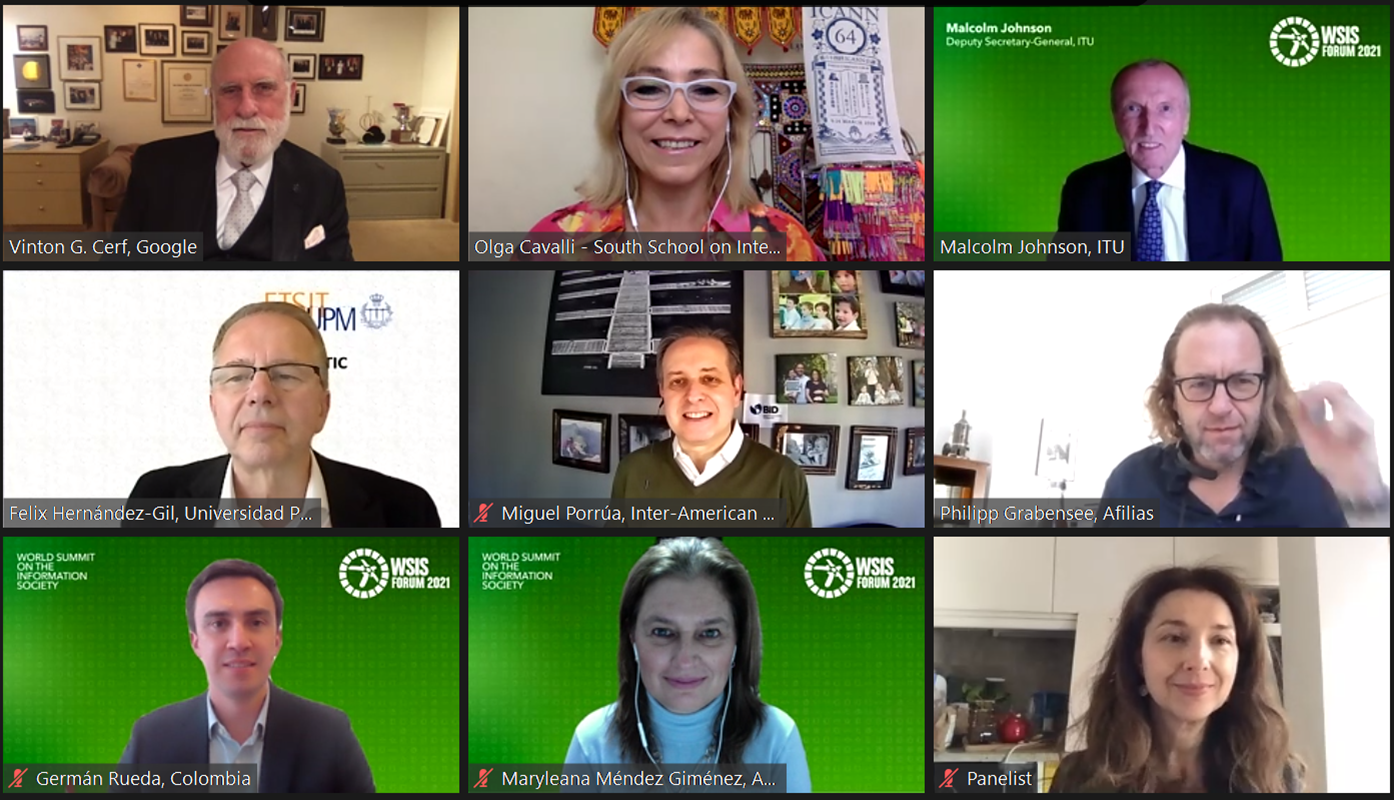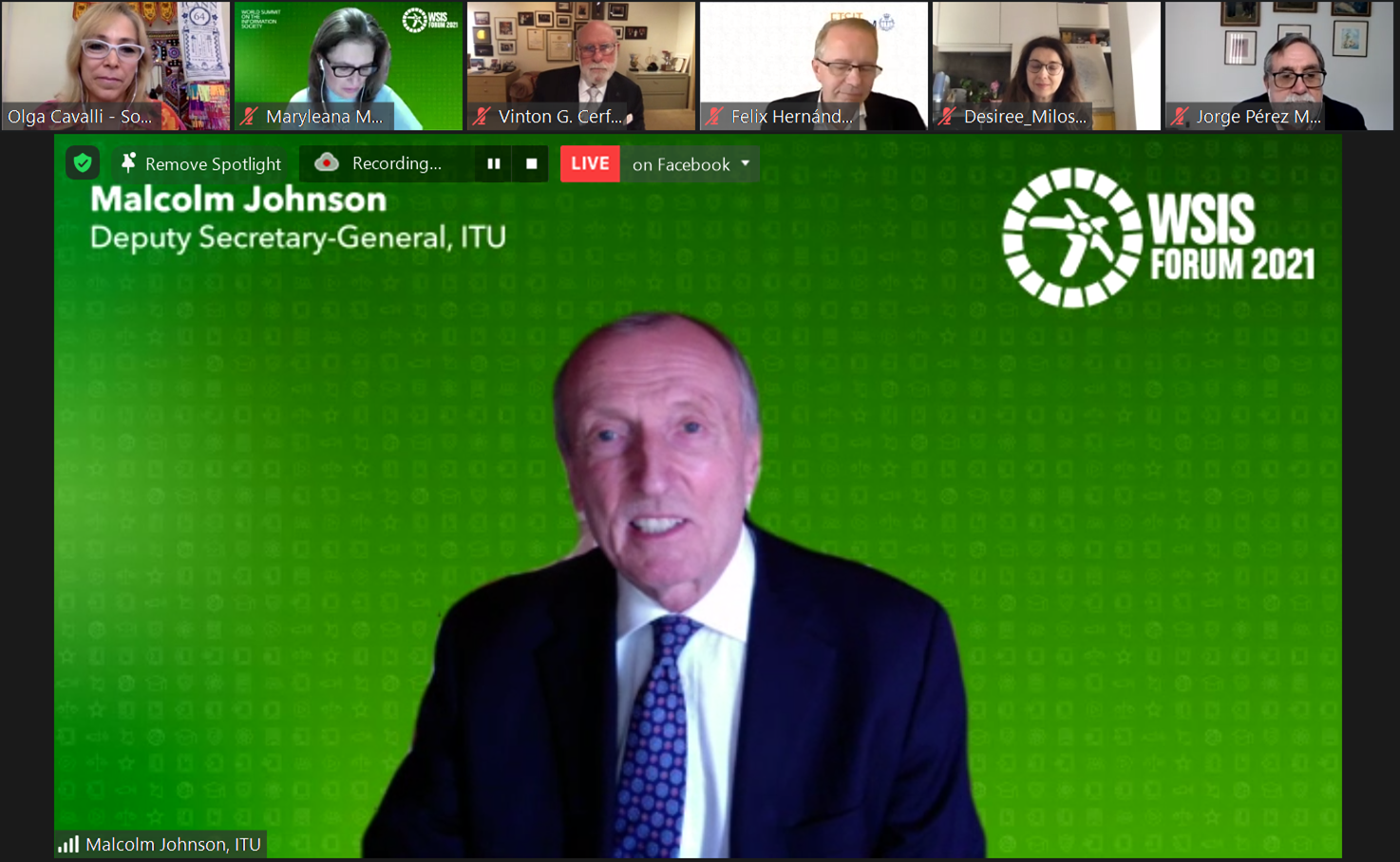New challenges for digital transformation in developing economies
South School on Internet Governance and Centro de Capacitación en Alta Tecnología para América Latina y el Caribe
Session 191
How to profit from good experiences during COVID-19 pandemic and overcome the challenge of development in economic crisis
The COVID pandemic exposed all countries to several challenges: telework, working from home, home classes for students at all levels, different industries and businesses that made quick changes to adapt their activities and infrastructures to this new normal reality.
Some good outcomes have emerged, like the rapid reaction by several business, governments and organizations that could overcome the challenge, and some could even benefit from them.
At the same time there are many industries that suffered from this new reality, like tourism and air transportation, restaurants, among others. Other industries have adapted but at the same time its workers were exposed to other difficulties, like the lack of cybersecurity infrastructure at home offices, poor bandwidth or not updated computers for online teaching or learning.
Additionally, new social challenges appeared: higher workload for women at home, higher domestic violence related to lockdown and overcrowded homes.
In developing countries and economies, the gap between the connected and unconnected experienced a new exposure. In many locations the existing infrastructure is not ready yet to connect all the unconnected. Also the experience showed that those poorly connected had many difficulties in getting all the necessary information and communication tools for a reasonable working or learning activities, making the existing gap more evident and bigger.
On the other hand, what will be the impact of a much desired higher connectivity in the developing world in the global environment?
The objective of the workshop is to exchange ideas among the expert panelists in trying to answer the following questions:
- How can developing economies embrace the positive changes that the COVID pandemic generated in the mid-long term?
- What can be done to enhance the existing infrastructure to connect the unconnected and enhance the connectivity of those poorly connected?
- How can the gender gap in technology be diminished in relation to access to ICT services and education?
- Are there regulations that could be developed or enhanced in order to address these new challenges?
- How can the impact on the environment be controlled in relation with the development of new infrastructure to connect the unconnected or poorly connected?
- Is it there regional or international financing for making improvements to infrastructure and so help the developing economies?
- Is the global ICT infrastructure prepared to overcome a higher connectivity demand, more than the one that the world has experienced during 2020 and today?
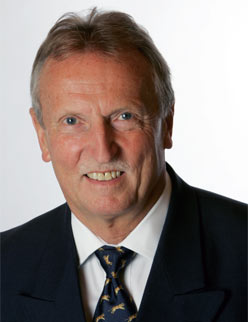
Mr. Malcolm Johnson, Deputy Secretary-General of ITU will deliver opening remarks.
Mr Johnson is a seasoned information and communication technology (ICT) executive who has served in multiple senior management positions at ITU.
Prior to serving as Deputy Secretary-General, Johnson served from 2007 to 2014 as Director of ITU’s Telecommunication Standardization Bureau (TSB). Between 2003 and 2006, Mr Johnson was International Coordinator at the United Kingdom’s Office of Communications (Ofcom), where he had lead responsibility for the United Kingdom in ITU.
From 1992 to 2003, he was Director of the United Kingdom’s Radiocommunications Agency and European Coordinator for ITU World Radiocommunication Conferences in 1993, 1995 and 1997.
Between 1988 and 1992, he worked in the European Commission’s Telecommunication Regulations Division, where he represented the Commission in the Council and the Parliament of the European Union.

Vinton G. Cerf is vice president and Chief Internet Evangelist for Google. He contributes to global policy development and continued spread of the Internet. Widely known as one of the "Fathers of the Internet", Cerf is the co-designer of the TCP/IP protocols and the architecture of the Internet. He has served in executive positions at MCI, the Corporation for National Research Initiatives and the Defense Advanced Research Projects Agency and on the faculty of Stanford University.
Vint Cerf served as chairman of the board of the Internet Corporation for Assigned Names and Numbers (ICANN) from 2000-2007 and has been a Visiting Scientist at the Jet Propulsion Laboratory since 1998. Cerf served as founding president of the Internet Society (ISOC) from 1992-1995. Cerf is a Foreign Member of the British Royal Society and Swedish Academy of Engineering, and Fellow of IEEE, ACM, and American Association for the Advancement of Science, the American Academy of Arts and Sciences, the International Engineering Consortium, the Computer History Museum, the British Computer Society, the Worshipful Company of Information Technologists, the Worshipful Company of Stationers and a member of the National Academy of Engineering. He has served as President of the Association for Computing Machinery, chairman of the American Registry for Internet Numbers (ARIN) and completed a term as Chairman of the Visiting Committee on Advanced Technology for the US National Institute of Standards and Technology. President Obama appointed him to the National Science Board in 2012.
Cerf is a recipient of numerous awards and commendations in connection with his work on the Internet, including the US Presidential Medal of Freedom, US National Medal of Technology, the Queen Elizabeth Prize for Engineering, the Prince of Asturias Award, the Tunisian National Medal of Science, the Japan Prize, the Charles Stark Draper award, the ACM Turing Award, Officer of the Legion d’Honneur and 29 honorary degrees. In December 1994, People magazine identified Cerf as one of that year`s "25 Most Intriguing People."
His personal interests include fine wine, gourmet cooking and science fiction. Cerf and his wife, Sigrid, were married in 1966 and have two sons, David and Bennett.
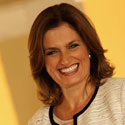
ICT professional with more than 25 years of experience in the industry.
Academic Background:
Major in Computer Science and Information Technology, University of Costa Rica, Costa Rica.
Master’s degree in IT Management, Monterrey Institute of Technology and Higher Education, Mexico
Professional Background:
From 2009 to 2017, she was a full-time member of the Board of the Telecom Regulatory Authority (SUTEL) in Costa Rica, serving 3 terms as President. The Board directed, organized and supervised the opening of the local telecom market and was in charge of the spectrum auctions, relevant market studies, number portability, universal service fund projects, and sector statistics, among other important market regulation processes. Before this endeavor, she worked for more than six years directly in the telecom industry as project director in Latin America, deploying value added networks in the whole region. She has previously occupied various high-level positions at important public and private ICT companies in Costa Rica.
Today, she works as a Secretary General of ASIET (Interamerican Association of Telecom Operators).

Germán Camilo Rueda is Vice Minister of Digital Transformation of the Ministry of Information Technologies and Communications of Colombia. He is an industrial engineer, with a focus on management, from the University of Miami and has an executive MBA in Health Sector Management and Policy. Additionally, he completed the entrepreneurship program in social innovation with StartingBloc at the London Business School (England).
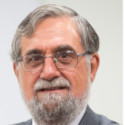
Jorge Pérez is a full Professor at the Universidad Politécnica de Madrid. He holds a PhD in Telecommunication Engineering from the Universidad Politécnica de Madrid (Spain) and a MA in Political Sciences and Sociology from the Universidad Complutense (Spain).
From 1978 to 1990 he was a full-time professor at the ETSI Telecomunicación, holding different positions (Assistant and Associate), becoming a Full Professor in 1990.
He joined FUNDESCO in February 1992, where he was responsible for the Department of Prospective and Technological Evaluation and for the University Programs and Research, while he remained affiliated to the University on a part-time basis. In October 1993 he returned to his full-time position at the University to lead the Fundesco Chair at UPM (until December 1994) and became the director of the Postgraduate Program in Networks and communications Systems at UPM.
In October 1994, he created the Group of Information and Communication Technologies (GTIC) at ETSI Telecommunicación UPM, a research group, specialized in the prospective analysis and evaluation of new services in telecommunications, and regulation and policy of telecommunications.
He has been an independent Director of the Board of Directors of INFOGLOBAL (1999-2000) and the company TTT (2000-2002) and Technological Advisor of the N-Economy (CEPREDE) (2001-2220), of the IKUSI company (2002-2003) and cable AML (2004-2005), Director and Chairman of the Board of Directors of SYNMACHIA (2007-2008).
From June 1990 until February 1999, he was Chairman of the Official Society of Telecommunications Engineers (COIT). From September 2003 until June 2004, he was Director General for the Development of the Information Society at the Ministry of Science and Technology, and member of the CDTI and Public Business Entity RED.ES’ Boards of Administrators.
From July 2005 to November 2015 he was the director of the "Red.es Chair" at UPM, researching issues related to the socioeconomic aspects of information technologies and communications, along with telecommunications policy and regulation.
From August 2015 to December 2016 he has been the Director General of Digital Economy at Red.es and from December 2016 to October 2018 he has been the Director of the Spanish National Observatory of Telecommunications and of the Information Society (ONTSI).
He founded the Internet Governance Forum in Spain (IGF Spain) in 2008, an open and decentralized space that aims to foster the debate of public policy issues pertaining to the Internet, which he coordinates. He has recently received the Internet award at the Spanish Senate.

Dr. Felix Hernandez-Gil is currently a Senior Researcher in the Department of Information and Communication Technologies (GTIC) of the Technical School of Telecommunication Engineering, (ETSIT) at the Polytechnical University of Madrid (UPM).
He holds a PhD and an MSc in Telecommunications Engineering by the Polytechnical University of Madrid and an MBA by the IESE business school. He received the Special Doctoral Award in Telecommunication Engineering.
He has over 30 years of experience in the ICT sector where he has gained extensive knowledge on technologies and regulation. Since the beginning of the telecom liberalization in Spain he worked at the corporate regulatory affairs department at Telefonica Headquarters for more than 15 years where he had the opportunity to deal with Spanish and European regulators on the development of the new regulatory measures to open the market to competitors.
Prior to joining the Corporate Regulatory Department he was at Telefonica Research and Development as head of division, where he worked on radio systems for local access, fiber for access networks and multimedia services for fixed and mobile networks. He acted as representative of Telefonica in the international organization ISO where MPEG video and audio technologies are standardized.
Previously he worked at AT&T Bell Labs (Holmdel, New Jersey) where he was involved in the research on Dense Wavelength Division Multiplexing systems (DWDM) for optical access networks and coordinated the setup of a new state of the art fabrication facility for optoelectronic devices in Madrid. He participated in the development of the first world’s monolithic integrated chip of an optical coherent receiver for these systems.
He has been adviser with Spanish government in the “Comision Interministerial de Ciencia y Tecnología (CICYT)” where he participated in the evaluation of project proposals in the area of ICT and in the preparation of Spain National Research program. He also participated as expert to evaluate project proposals in the area of optical communications for the European Commission.
He lectured at a postgraduate degree on the regulation of telecommunication at the Polytechnical University of Madrid where he has directed several doctoral theses. He is the author of more than 100 publications in technical magazines, conferences and books. He holds a number of patents on optical communication systems and image processing algorithms developed within AT&T Bell Labs and Telefonica.

Miguel A. Porrúa is the Coordinator of the Data and Digital Government Cluster at the IFD/ICS Unit of the Inter-American Development Bank. Prior to this position, Miguel was a senior e-Government Specialist at the Organization of American States (OAS) where he managed the Organization´s e-Government portfolio. Previously Miguel was the Director of Government Relations for Latin America at the electronic government company govWorks, based in New York, where he oversaw various electronic government projects in the region. Prior to his arrival in the US, Miguel lived in Montevideo (Uruguay) where he managed projects related to the modernization of the public sector for the Spanish government (Spanish Agency for International Cooperation and Development, AECID) and the United Nations (UNDP).
Miguel obtained his Bachelor Degree in Business and Economics at the University of Oviedo (Spain) and his MBA from Thunderbird Business School (Arizona, USA).
Miguel has written several articles and documents on electronic government and co-edited the book Latin America Puntogob. His article “e-Government in Latin America: a review of the success in Colombia, Uruguay and Panama” has been published in the Global Information Technology Report 2013 of the World Economic Forum. Miguel has coordinated the Latin America and Caribbean Cybersecurity Report 2016 and 2020 jointly published by the IDB and the OAS. In 2019, apolitical included Miguel among the 100 most influential people in digital government.

Philipp Grabensee is a co-founder and Deputy Chairman at Afilias. He has extensive experience in DNS, Domain Names and leads Afilias’ worldwide government relations team. Philipp is a practicing lawyer and partner of the law firm SHSG, Rechtsanwälte und Fachanwälte für Strafrecht. He was previously a member of the Names Council in the ICANN Domain Name Supporting Organization. He served as Chairman of the Afilias board from 2003 to 2014.
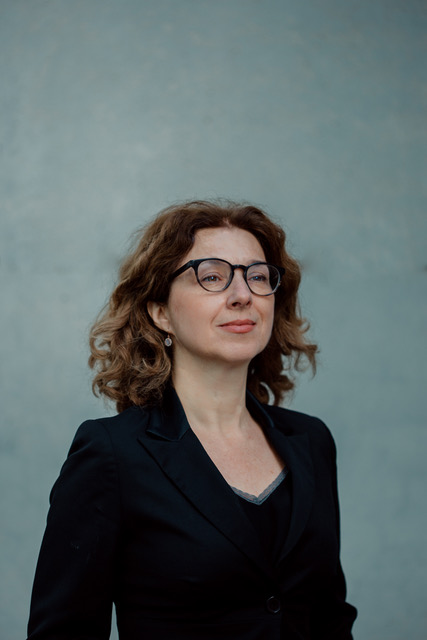
Desiree is an active connector, internet public servant and a member of the global Internet governance community. She served as Special Adviser to the UN Under-Secretary and Chair of the Internet Governance Multistakeholder Advisory Group 2006-2009 Mr Nitin Desai, as Trustee of the Board of the Internet Society (2004-2010 and 2013-2019) and on the Board of Computer Professionals for Social Responsibility (2004-2010).
Currently she chairs the board of SHARE Foundation, co-chairs the RIPE Cooperation Working Group and serves on the UK IGF Program Committee, ISOC England UK and ISOC Belgrade Chapter.
As Board director of .ME Registry, she is representing Afilias, the world’s second largest top-level-domain registry, as its Senior Public Policy and International Affairs Advisor.
When she is not fighting for the free and open Internet, Desiree is working on a DesCon.me conference – an annual IoT Ecology Hackathon for Southern Europe she founded in 2015. She continues to volunteer her time and fundraise for many different local and global Internet communities, organisations and institutions to keep the Internet open and accessible.

Olga Cavalli is an Internet leader whose work has been fundamental for enhancing a relevant participation of Latin America and the Caribbean in Internet Governance.
She is the co-founder and director of the South School on Internet Governance which has granted thousands of fellowships for attending an intensive training on Internet Governance, organized in different countries of the Americas since 2008. The School is also open to the community through remote participation with video streaming and different languages, hosting thousands of attendees from all over the world. She is also the co-founder of other capacity building activities: Dominios Latinoamerica, ARGENSIG, the Argentina School on Internet Governance and Desafíos de Internet.
She co-edited the book “Internet Governance and Regulations in Latin America” published in commemoration of the 10th anniversary of the South School on Internet Governance. The book is free and available in Spanish for the whole community and soon will be published in Portuguese and English.
Olga is frequently invited as keynote speaker and panelist in international summits and events. For the IGF 2019 in Berlin the German Government invited her to participate in the IGF 2019 Berlin promotional video, which includes personalities like Angela Merkel and Vint Cerf, among others. She is also a frequent contributor writing papers and chapter books in subjects related with her areas of expertise.
Since 2006 Olga is very active in ISOC. Between 2016 - 2021 she was a member of the ISOC Board of Trustees. She is ISOC Argentina Chapter board member, and was the ISOC Argentina Chapter´s president (2015 – 2018). She was also a member of the ISOC Chapter Advisory Council representing Latin America and the Caribbean, among other activities.
Recognized by ISOC as a “Game Changer”, Olga works towards the inclusion of girls and women in ICTs and the Internet, organizing activities jointly with ISOC, ISOC Argentina Chapter, ITU, UNESCO, ICANN, the Argentina National Center of Engineers and the University of Buenos Aires.
As an Internet expert, she was invited by ITU to participate in the Study Group on Internet of Things and Smart Cities (2015-2017). The ITU has recognized her as an innovator in this field.
During 2007- 2014 she was distinguished by the United Nations Secretary General, being chosen to be a part of the Internet Governance Forum's Multistakeholder Advisory Group, MAG.
Olga is very active in ICANN. Presently she is GNSO Council Member, and was GAC vicechair.
Olga is a Teacher at the University of Buenos Aires and she is also involved in the development of community network projects in rural areas of Argentina.
Olga is a member of the IGF Argentina committee. Previously she was a member of the LAC IGF committee, the representative of Argentina in the WSIS (Tunis 2005), a member of the Committee of the Regional Action Plan eLAC - ECLAC for the Information Society in Latin America and the Caribbean (2010 - 2015), coordinator of the REGULATEL IDB Regional Roaming Project (2010-2013), member of the National Commission of Cyber Crime which defined the Cyber Crime Law of Argentina (2008-2009), member of the Commission that created the National Digital Agenda of Argentina (2008-2009) and Board member of the National Engineers Center of Argentina.
Her education includes a PhD in Business Direction, a Master’s degree in Business Administration, a Master’s degree in Telecommunications Regulation, and a degree in Electronic and Electric Engineering.
She is fluent in Spanish, English, Portuguese and German, and can understand French and Italian.
Olga lives in Buenos Aires and is the mother of Juana and Federico.
-
 C2. Information and communication infrastructure
C2. Information and communication infrastructure
-
 C3. Access to information and knowledge
C3. Access to information and knowledge
-
 C4. Capacity building
C4. Capacity building
-
 C6. Enabling environment
C6. Enabling environment
-
 C7. ICT applications: benefits in all aspects of life — E-government
C7. ICT applications: benefits in all aspects of life — E-government
-
 C7. ICT applications: benefits in all aspects of life — E-business
C7. ICT applications: benefits in all aspects of life — E-business
-
 C7. ICT applications: benefits in all aspects of life — E-learning
C7. ICT applications: benefits in all aspects of life — E-learning
-
 C7. ICT applications: benefits in all aspects of life — E-environment
C7. ICT applications: benefits in all aspects of life — E-environment
-
 C10. Ethical dimensions of the Information Society
C10. Ethical dimensions of the Information Society
The session directly links to WSIS Action Lines C2, C3, C4, C6, those C7 related with E-business, E-Environment and E-Learning and C10 Ethical dimensions of the Information Society
C2. Information and communication infrastructure:
The workshop will exchange ideas about how to enhance ICT infrastructure to connect the unconnected and help development
C3. Access to information and knowledge
The COVID pandemic showed the infrastructure deficiencies in several regions of different countries, exposing lack of access to online classes to many students.
The workshop will try to answer questions and exchange ideas on how to overcome this problem.
C4. Capacity building
The use of online training will not stop after the COVID Pandemic, many new ideas and ways of learning will appear, based on a hybrid mixing on site and online training.
The workshop will exchange ideas in how to organize this future capacity building infrastructure so it can reach as many people as possible.
C6. Enabling environment
The workshop will analyze which kind of regulations should be made in order to achieve the changes to enhance ICT infrastructure, connect the unconnected and take care of the environment
C7: ICT applications: benefits in all aspects of life: The workshop will exchange ideas with experts in how to make e-business and e-learning and at the same time having in consideration the environment.
E-business: a stronger ICT infrastructure can help the development economies and the capabilities of those working from home
E-learning: closing the gap between those not connected or poorly connected will enhance the e-learning capabilities of a big part of population of developing countries.
E-environment: It is important to address the relationship of connectivity for all in developing economies and the global warming due to the use of extended ICT infrastructure.
C10: Ethical Dimensions of the Information Society: COVID pandemic showed other challenges: a higher workload specially for women at home, higher domestic violence and difficulties for inclusion of those not connected. The workshop will exchange ideas in how to overcome these problems.
-
 Goal 1: End poverty in all its forms everywhere
Goal 1: End poverty in all its forms everywhere
-
 Goal 4: Ensure inclusive and equitable quality education and promote lifelong learning opportunities for all
Goal 4: Ensure inclusive and equitable quality education and promote lifelong learning opportunities for all
-
 Goal 5: Achieve gender equality and empower all women and girls
Goal 5: Achieve gender equality and empower all women and girls
-
 Goal 8: Promote inclusive and sustainable economic growth, employment and decent work for all
Goal 8: Promote inclusive and sustainable economic growth, employment and decent work for all
-
 Goal 10: Reduce inequality within and among countries
Goal 10: Reduce inequality within and among countries
Goal 1: End poverty in all its forms everywhere
Goal 4: Ensure inclusive and equitable quality education and promote lifelong learning opportunities for all
Goal 5: Achieve gender equality and empower all women and girls
Goal 8: Promote inclusive and sustainable economic growth, employment and decent work for all
Goal 10: Reduce inequality within and among countries
South School on Internet Governance
Book "Internet Governance and Regulations in Latin America"
Available in Spanish, English and Portuguese free for the community visiting www.gobernanzainternet.org
CCAT LAT - Centro de Capacitación en Alta Tecnología para Latinoamérica y el Caribe
